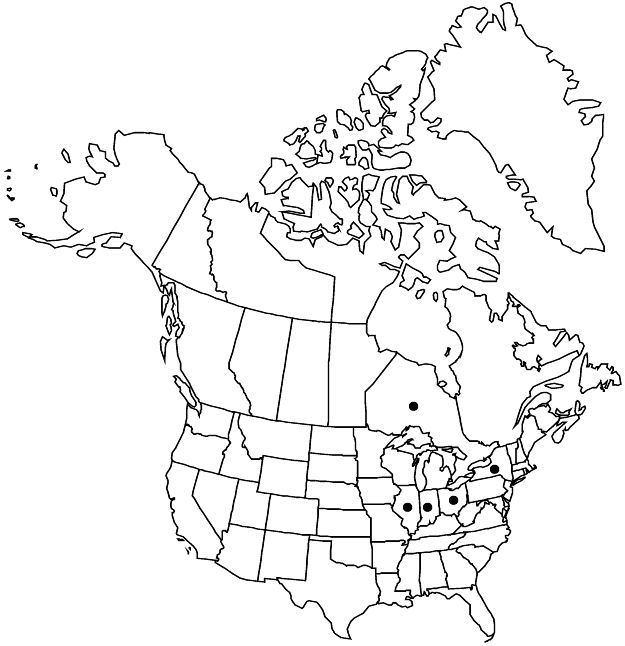Difference between revisions of "Crataegus ×lucorum"
Bot. Gaz. 31: 227. 1901. as species
imported>Volume Importer |
GeoffLevin (talk | contribs) m (Corrected authority to match printed version) |
||
| Line 1: | Line 1: | ||
{{Treatment/ID | {{Treatment/ID | ||
|accepted_name=Crataegus ×lucorum | |accepted_name=Crataegus ×lucorum | ||
| − | |accepted_authority= | + | |accepted_authority=Sargent |
|publications={{Treatment/Publication | |publications={{Treatment/Publication | ||
|title=Bot. Gaz. | |title=Bot. Gaz. | ||
| Line 37: | Line 37: | ||
-->{{#Taxon: | -->{{#Taxon: | ||
name=Crataegus ×lucorum | name=Crataegus ×lucorum | ||
| − | |authority= | + | |authority=Sargent |
|rank=species | |rank=species | ||
|parent rank=genus | |parent rank=genus | ||
Latest revision as of 13:46, 30 November 2021
Shrubs or trees, 50–70 dm. Stems: twigs: new growth slightly villous, 1-year old brown, older dark gray-brown; thorns on twigs ± straight to ± recurved, 2-years old bright red-brown, slender to moderately stout, 4–5 cm. Leaves deciduous; petiole very slender, length 50–60% blade, glandular; blade ovate to obovate, 4–5 cm, thin, base rounded to broadly cuneate, lobes 3 or 4 per side, sinuses shallow to moderately deep, lobe apex acute, margins serrate, venation craspedodromous, veins 4 or 5 per side, apex acute, surfaces glabrous. Inflorescences 5–10-flowered; branches sparsely villous; bracteoles caducous, ± linear, membranous, margins glandular-serrate. Flowers 18 mm diam.; hypanthium glabrous; sepal margins glandular-serrate; stamens 20, anthers purple; styles 4 or 5. Pomes red, ± obovoid, 12–16 mm; flesh succulent; pyrenes dorsally grooved, sides plane.
Phenology: Flowering May; fruiting Sep–Oct.
Habitat: Brush, borders of woods, stream banks
Elevation: 200–300 m
Distribution

Ont., Ill., Ind., N.Y., Ohio.
Discussion
Crataegus ×lucorum is scattered from Illinois to New York, exhibiting a mixture of characteristics of ser. Coccineae and ser. Tenuifoliae.
Selected References
None.